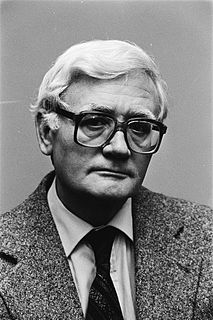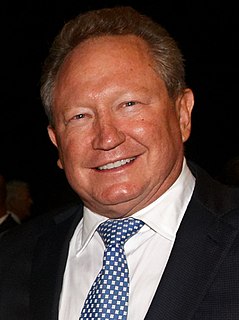A Quote by Samir Selmanovic
The emerging church movement has come to believe that the ultimate context of the spiritual aspirations of a follower of Jesus Christ is not Christianity but rather the kingdom of God. ... to believe that God is limited to it would be an attempt to manage God. If one holds that Christ is confined to Christianity, one has chosen a god that is not sovereign. Soren Kierkegaard argued that the moment one decides to become a Christian, one is liable to idolatry.
Related Quotes
The sum of the whole matter is this: He who is one in will and heart with God is a Christian. He who loves God is one in will and heart with Him. He who trusts Christ loves God. That is Christianity in its ultimate purpose and result. That is Christianity in its means and working forces. That is Christianity in its starting point and foundation.
Jesus Christ was God - the Personal God become man. He has manifested Himself many times in different forms and these alone are what you can worship. God in His absolute nature is not to be worshipped. Worshipping such God would be nonsense. We have to worship Jesus Christ, the human manifestation, as God. You cannot worship anything higher than the manifestation of God. The sooner you give up the worship of God separate from Christ, the better for you.
The crucified but risen Jesus appears in the believing, assembled community of the church. That this sense of the risen, living Jesus has faded in many [churches] can be basically blamed on the fact that our churches are insufficiently 'communities' of God. Where the church of Jesus Christ lives, and lives a liberating life in the footsteps of Jesus, the resurrection faith undergoes no crisis. On the other hand, it is better not to believe in God than to believe in a God who minimizes human beings, holds them under and oppresses them, with a view to a better world to come.
I believe in miracles, but I trust in Jesus. If you believe the Bible, you know that God is a miracle-working God. And God is not limited in any degree nor any respect. He is totally sovereign. Do you believe that? I hope you do. Believe in miracles, but don’t put your faith in miracles. Put your faith and your trust in the Lord Jesus Christ.
The Christian life is stamped by 'moral spontaneous originality,' consequently the disciple is open to the same charge that Jesus Christ was, viz., that of inconsistency. But Jesus Christ was always consistent to God, and the Christian must be consistent to the life of the Son of God in him, not consistent to hard and fast creeds. Men pour themselves into creeds, and God has to blast them out of their prejudices before they can become devoted to Jesus Christ.
The essence of Christianity is centered upon the Lord Jesus Christ. The sum and substance of being a Christian is trusting Christ with the entirety of one's being. The height of the Christian life is adoring Christ, the depth of it loving Him, the breadth of it obeying Him, and the length of it following Him. Everything in the Christian life revolves around Jesus Christ. Simply put, Christianity is Christ.
A Christian is one who recognizes Jesus as the Christ, the Son of the living God, as God manifested in the flesh, loving us and dying for our redemption; and who is so affected by a sense of the love of this incarnate God as to be constrained to make the will of Christ the rule of his obedience, and the glory of Christ the great end for which He lives.
Christians have always tended to transform the Christian Revelation into a Christian religion. Christianity is said to be a religion like any other or, conversely, some Christians try to show that it is a better religion than the others. People attempt to take possession of God. Theology claims to explain everything, including the being of God. People tend to transform Christianity into a religion because the Christian faith obviously places people in an extremely uncomfortable position that of freedom guided only by love and all in the context of God's radical demand that we be holy.
It's curious that the Church has become the most tightfisted at the very time in history when God has provided most generously. There's considerable talk about the end of the age, and many people seem to believe that Christ will return in their lifetime. But why is it that expecting Christ's return hasn't radically influenced our giving? Why is it that people who believe in the soon return of Christ are so quick to build their own financial empires--which prophecy tells us will perish--and so slow to build God's kingdom?
































